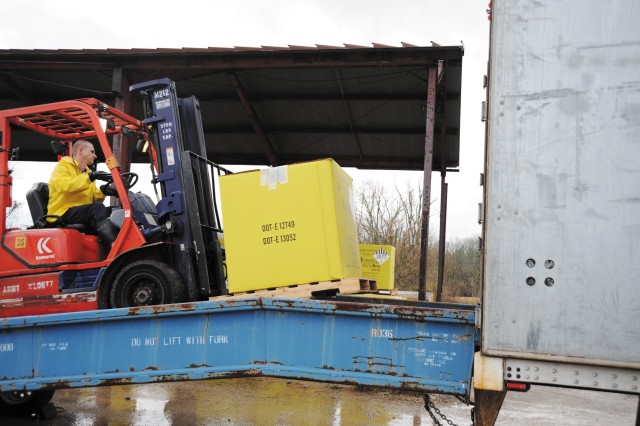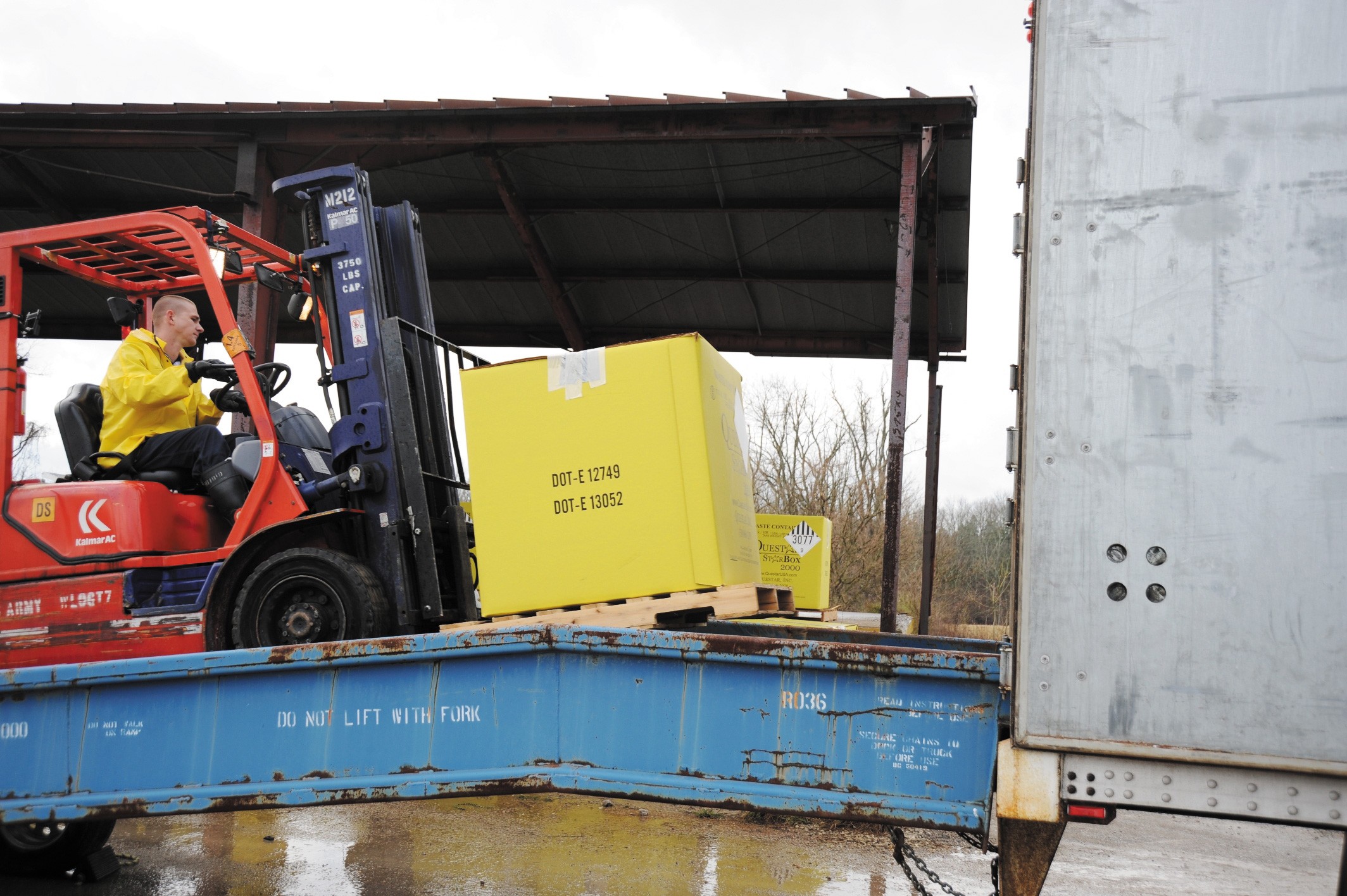
During World War I, U.S. troops were exposed to chemical weapons on the battlefield. Since that time, both on the battlefield and in terrorist situations, chemicals have been employed to inflict casualties. One of the smallest tenants at Aberdeen Proving Ground is working to eliminate the possibility that U.S. Warfighters could be exposed to that hazard in the future.
The U.S. Army Element, Assembled Chemical Weapons Alternatives program, known as ACWA, contributes to the United States' defense by managing the oversight and support of complex facilities at Pueblo Chemical Depot, Colo., and Blue Grass Army Depot, Ky., designed to safely destroy thousands of rockets and projectiles containing nerve and mustard agents.
While the Army Element serves as a separate reporting activity under the U.S. Army Materiel Command, the program manager reports directly to the Department of Defense under the umbrella of the DoD's Chemical Demilitarization Program. The CDP also includes the U.S. Army Chemical Materials Agency, another Edgewood Area tenant.
"ACWA is a fascinating organization to be a part of, and working here is one of the most unique job experiences one might encounter here at APG," said Program Manager Kevin J. Flamm. "You're helping to make history-and leaving a legacy where there will no longer be any chemical weapons stockpiles in the United States."
Among the program's key recent accomplishments is Operation Swift Solution, a joint Army project with other APG team members including the Edgewood Chemical Biological Center and CMA, as well as Blue Grass Army Depot, Ky., agencies. The mission involved destroying three corroding steel ton containers holding a mixture of GB nerve agent (sarin) and other chemicals.
Under the ACWA initiative, an ECBC unit deployed to Kentucky with a transportable neutralization system and eliminated all risks associated with the containers over a five-month period.
In the mean time, construction is well under way at the Blue Grass Army Depot on the full-scale neutralization facility that will destroy the entire chemical weapons stockpile stored there.
As for the Pueblo site, in February 2009 the Pueblo Chemical Agent-Destruction Pilot Plant was recognized as a star worksite through the Department of Labor's Occupational Safety and Health Administration's Voluntary Protection Program. The outstanding safety achievement is the first for a chemical demilitarization facility while in the construction phase.
"The VPP recognition sets a benchmark of excellence for this project," said Gary Anderson, ACWA's site project manager at the Pueblo facility.
OSHA cited the Pueblo plant for excellence in three areas: its hazard evaluation system, its medical program and its contractor management program.
Visit to see how employees and community members feel about this national safety award on www.youtube.com/usaeacwa.
To learn more about the overall ACWA program, visit www.pmacwa.army.mil.

Social Sharing